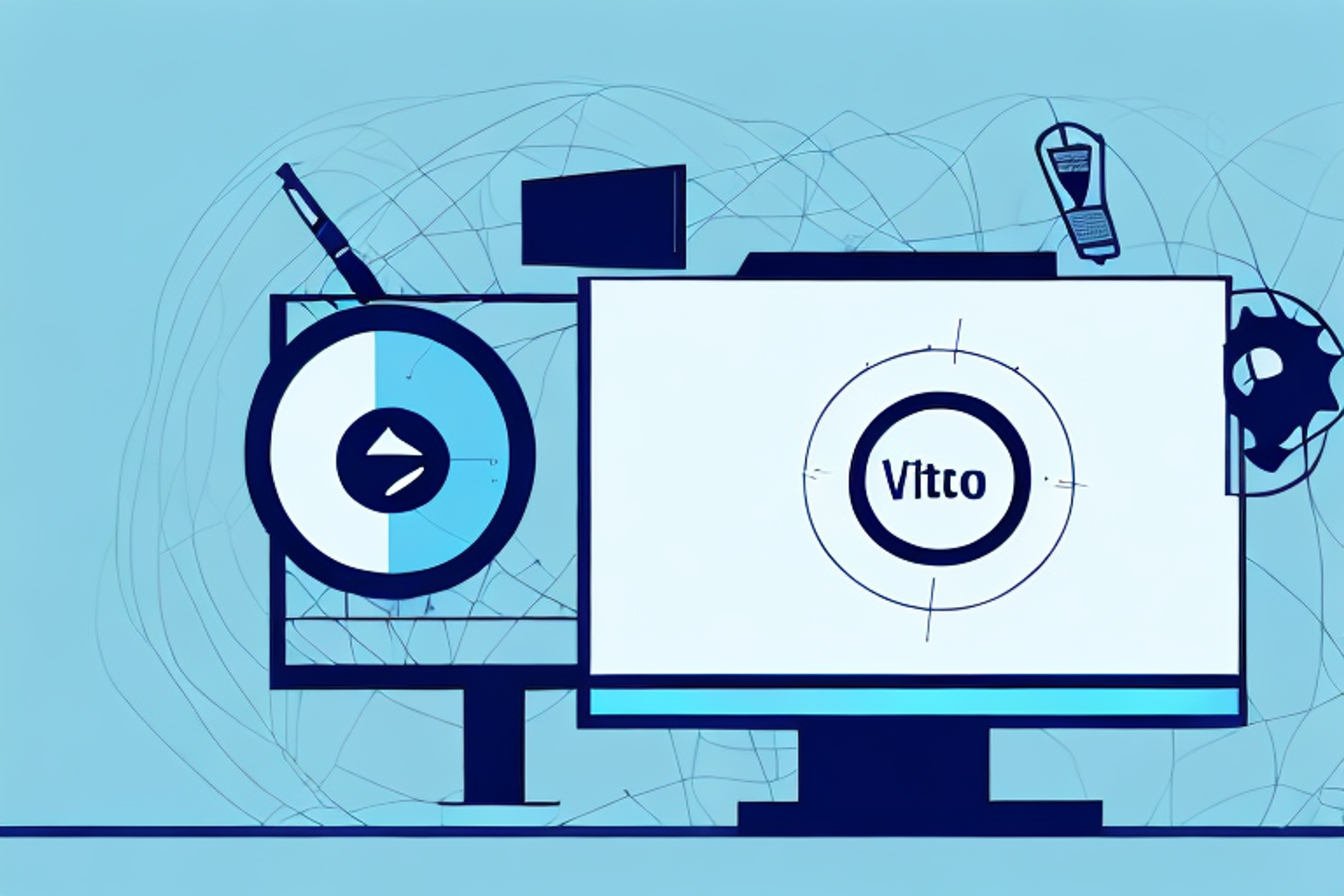Tips for Acing Your Technical Video Interview
Are you nervous about your upcoming technical video interview? Don't worry, we've got you covered! Our article provides valuable tips and tricks to help you ace your interview and land your dream job.
Posted June 13, 2025

Stay in the loop. Go places.
Join 250,000+ others and receive free resources, exclusive event invites, and personalized support to reach your goals.
Table of Contents
When applying for a technical job, the interview process can sometimes involve a technical video interview. These interviews are becoming more common as remote work is increasing in popularity. While the thought of being on camera may be nerve-wracking, there are steps you can take to prepare yourself and ace your technical video interview. In this article, we will cover everything you need to know to succeed in your technical video interview.
Why Technical Video Interviews Are Important
Technical video interviews are important for several reasons. Firstly, they give the hiring manager the chance to see how you present yourself on camera. As many jobs today are remote or require remote communication, being able to communicate effectively on camera is a valuable skill. Additionally, technical video interviews allow for assessments of your technical knowledge, problem-solving skills, and your ability to communicate how you solve problems. Therefore, preparing for your technical video interview is crucial to showcasing your technical ability and professionalism.
Another reason why technical video interviews are important is that they provide a more efficient and cost-effective way for companies to conduct interviews. Instead of having to fly candidates in for in-person interviews, companies can conduct video interviews from anywhere in the world. This saves both time and money for the company and the candidate. Additionally, technical video interviews can be recorded and reviewed by multiple team members, allowing for a more collaborative hiring process.
Lastly, technical video interviews can also help to level the playing field for candidates. In traditional in-person interviews, factors such as appearance, body language, and even the candidate's physical presence can influence the hiring decision. However, in a technical video interview, the focus is solely on the candidate's technical skills and ability to communicate effectively. This can help to eliminate any biases and ensure that the best candidate is selected for the job.
The Dos and Don'ts of Technical Video Interviews
It is important to know the dos and don'ts of technical video interviews. Firstly, ensure that you test your equipment and internet connection before the interview. Make sure that you have all the necessary tools installed and ready to go, such as screen-sharing software and a whiteboard tool. Another important tip is to dress professionally, just as you would in an in-person interview. Avoid wearing bright colors or patterns that could be distracting to the interviewer. Additionally, be mindful of your body language throughout the interview. Maintain eye contact with the interviewer and sit up straight, avoiding any fidgeting or slouching. On the other hand, be sure to avoid any distractions such as checking your phone, looking at your own image on the screen, or interrupting the interviewer. By following these basic tips, you can avoid common mistakes and present yourself professionally.
Another important aspect to consider during a technical video interview is your environment. Make sure that you are in a quiet and well-lit room, free from any potential interruptions or distractions. It is also a good idea to inform anyone else in your household or office that you will be in an interview and to avoid making any noise or entering the room. Additionally, make sure that your background is clean and professional-looking, as this can also reflect on your level of preparedness and attention to detail. By taking these extra steps to create a professional and distraction-free environment, you can ensure that you are able to focus on the interview and present yourself in the best possible light.
Preparing for a Technical Video Interview: What You Need to Know
When preparing for your technical video interview, be sure to familiarize yourself with the company and the position. Research the company's culture, the technical skills required for the role, and prepare answers to commonly asked interview questions. Additionally, ensure that you have a clear and quiet environment to conduct the interview. Let family members or roommates know that you will be in an interview and ask them to keep the noise level down. Make sure that you have an adequate amount of time for the interview and let the interviewer know if there are any time constraints or technical issues before the interview.
Another important aspect to consider when preparing for a technical video interview is your appearance. Dress professionally and avoid wearing bright colors or distracting patterns. It's also important to test your equipment beforehand to ensure that your camera, microphone, and internet connection are all working properly. You don't want technical difficulties to hinder your performance during the interview.
Finally, don't forget to practice your communication skills. During the interview, speak clearly and concisely, and avoid using technical jargon that the interviewer may not understand. Be prepared to explain your thought process and problem-solving skills, and ask questions to clarify any uncertainties you may have about the role or the company. With the right preparation and mindset, you can ace your technical video interview and land your dream job.
Common Technical Questions Asked in Video Interviews
Common technical questions in video interviews involve assessing your technical knowledge, problem-solving ability, and communication skills. Questions may range in complexity from simple code snippets to debugging and system design questions. Some examples include:
- Explain a specific project you worked on and your role in it.
- What is your experience with [specific programming language or technology]? Can you give an example of when you used it?
- How would you approach [specific problem or scenario]?
- Can you explain [specific technical concept or principle]?
It's important to study common technical interview questions and be comfortable with both coding and theory questions.
Additionally, technical questions in video interviews may also involve assessing your ability to work with a team and collaborate on projects. You may be asked about your experience working in an Agile environment or how you handle conflicts with team members. It's important to not only have technical skills but also interpersonal skills when it comes to working in a team.
How to Showcase Your Technical Skills During a Video Interview
During the interview, you may be asked to share your screen to showcase your coding skills. This is an opportunity to show your technical skills and your thought process. Make sure that you explain your thought process as you solve the problem and show how you have optimized your solution. Additionally, be sure to ask questions if you need clarification and engage with the interviewer throughout the process to show your communication skills.
Another way to showcase your technical skills during a video interview is to provide examples of your previous work. This can be done by sharing your portfolio or GitHub repository. Make sure to highlight the projects that are relevant to the position you are applying for and explain your role in each project. This will give the interviewer a better understanding of your technical abilities and experience.
It is also important to stay up-to-date with the latest technologies and trends in your field. During the interview, you can mention any new skills or certifications you have acquired recently. This shows that you are committed to continuous learning and development, which is highly valued in the tech industry.
The Importance of Body Language in Technical Video Interviews
Body language is important in all interviews and technical video interviews are no exception. Maintain good posture, use hand gestures to help explain your points, and keep eye contact with the interviewer as much as possible. You want to present yourself as confident, attentive, and engaged. During the screen-sharing portions of the interview, it can be helpful to use a laser pointer or a whiteboard tool to illustrate your thoughts.
Tips for Answering Behavioral Questions in a Technical Video Interview
Behavioral questions assess how you would handle certain scenarios in the workplace. These questions may seem unrelated to the technical aspects of the job but are important for assessing your teamwork, problem-solving skills, and work ethic. Some examples of behavioral questions include:
- Tell me about a time when you had to work with a difficult team member.
- Explain a project where you had to adapt to a change in requirements.
- What motivates you in the workplace?
For these types of questions, it is important to have specific examples ready and to use the STAR method (Situation, Task, Action, Result) to answer the questions.
How to Handle Difficult Questions During a Technical Video Interview
Difficult questions may come up during the technical video interview. The key to answering these types of questions is to stay calm and composed. If you need clarification on the question, don't hesitate to ask. And if you don't know the answer, say so. Honesty is often better than trying to bluff your way through the question. Stay positive and use the opportunity to show how you problem-solve and think critically.
Common Mistakes to Avoid During a Technical Video Interview
There are several common mistakes to avoid during a technical video interview:
- Not testing equipment or internet connection beforehand
- Getting distracted by phone notifications or your own image on the screen
- Poor posture, lack of eye contact, or fidgeting while on camera
- Not preparing for commonly asked interview questions
- Not engaging with the interviewer or showing interest in the company
By being aware of these common mistakes, you can avoid them and present yourself professionally during the technical video interview.
Tips for Dressing Appropriately and Creating a Professional Environment for Your Technical Video Interview
When it comes to dressing for a technical video interview, it is important to dress professionally. Even though the interview is virtual, it is still a formal occasion. Avoid bright colors and busy patterns that could be distracting. Additionally, be sure to create a professional environment for the interview. Choose a quiet room with minimal background noise and a plain background. Make sure that your lighting is adequate and avoid any harsh shadows or glares.
How to Follow Up After Your Technical Video Interview
After your technical video interview, be sure to send a thank-you note to the interviewer. This shows your appreciation for their time and reiterates your interest in the position. Additionally, if you have any follow-up questions, now is the time to ask them. This shows that you are engaged and interested in the company and the position.
Handling Virtual Technical Group Interviews
In some cases, your technical video interview may involve a group of interviewers. This can be challenging, but it's important to treat it like any other interview. Make sure that you know who will be joining the interview and prepare accordingly. Be sure to address each interviewer by name and engage with them throughout the interview. Additionally, make sure that you are aware of everyone's camera and microphone settings to ensure smooth communication.
Nailing your technical presentation during video interview
If you are required to give a technical presentation during your technical video interview, be sure to prepare ahead of time. Practice your presentation and make sure that your slides are easy to read and visually appealing. Keep your presentation concise and relevant to the job you are applying for. Additionally, be sure to engage the audience with your presentation and answer any questions that arise.
By taking these steps and preparing for your technical video interview, you can present yourself professionally and increase your chances of landing the job.











